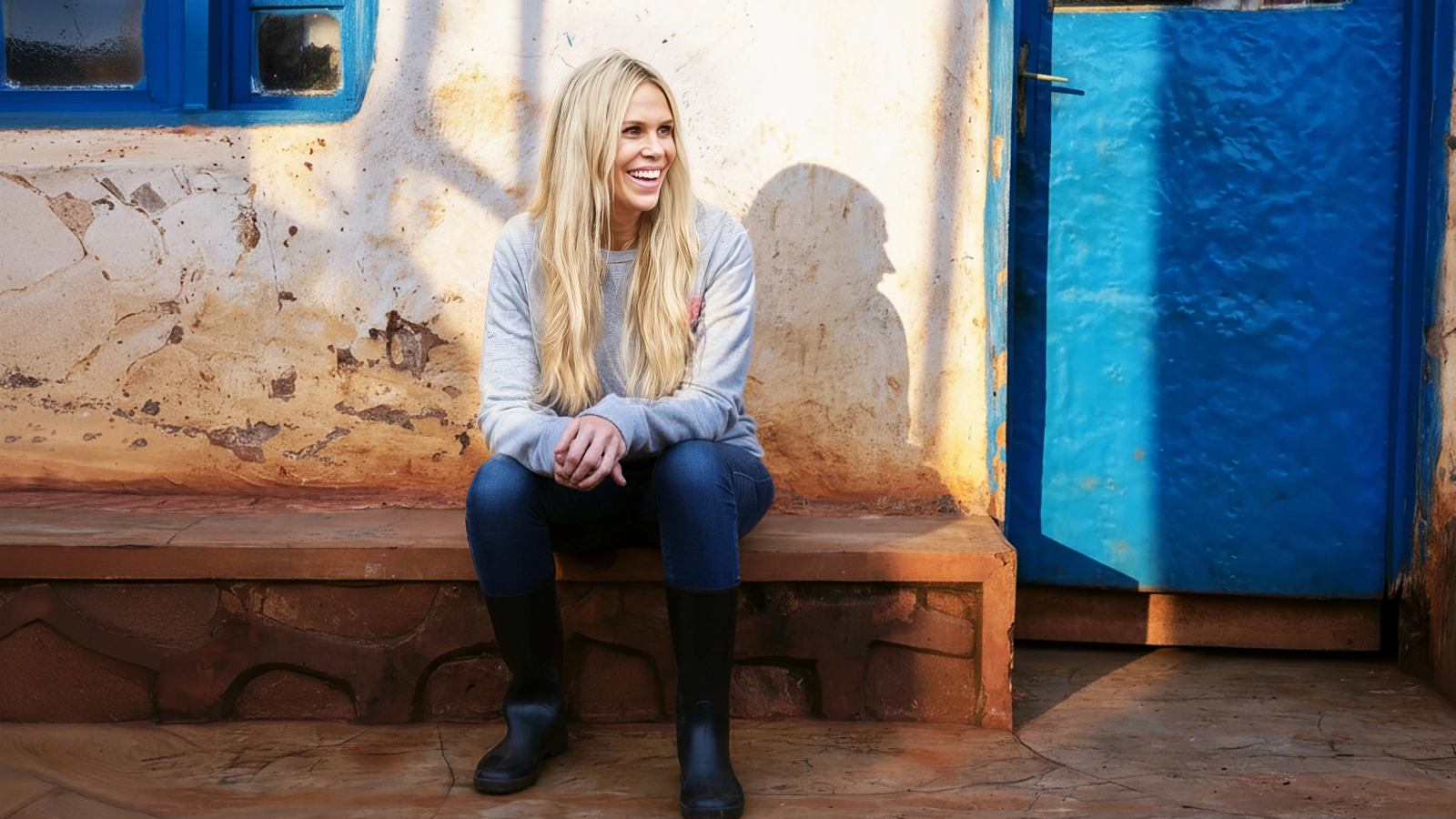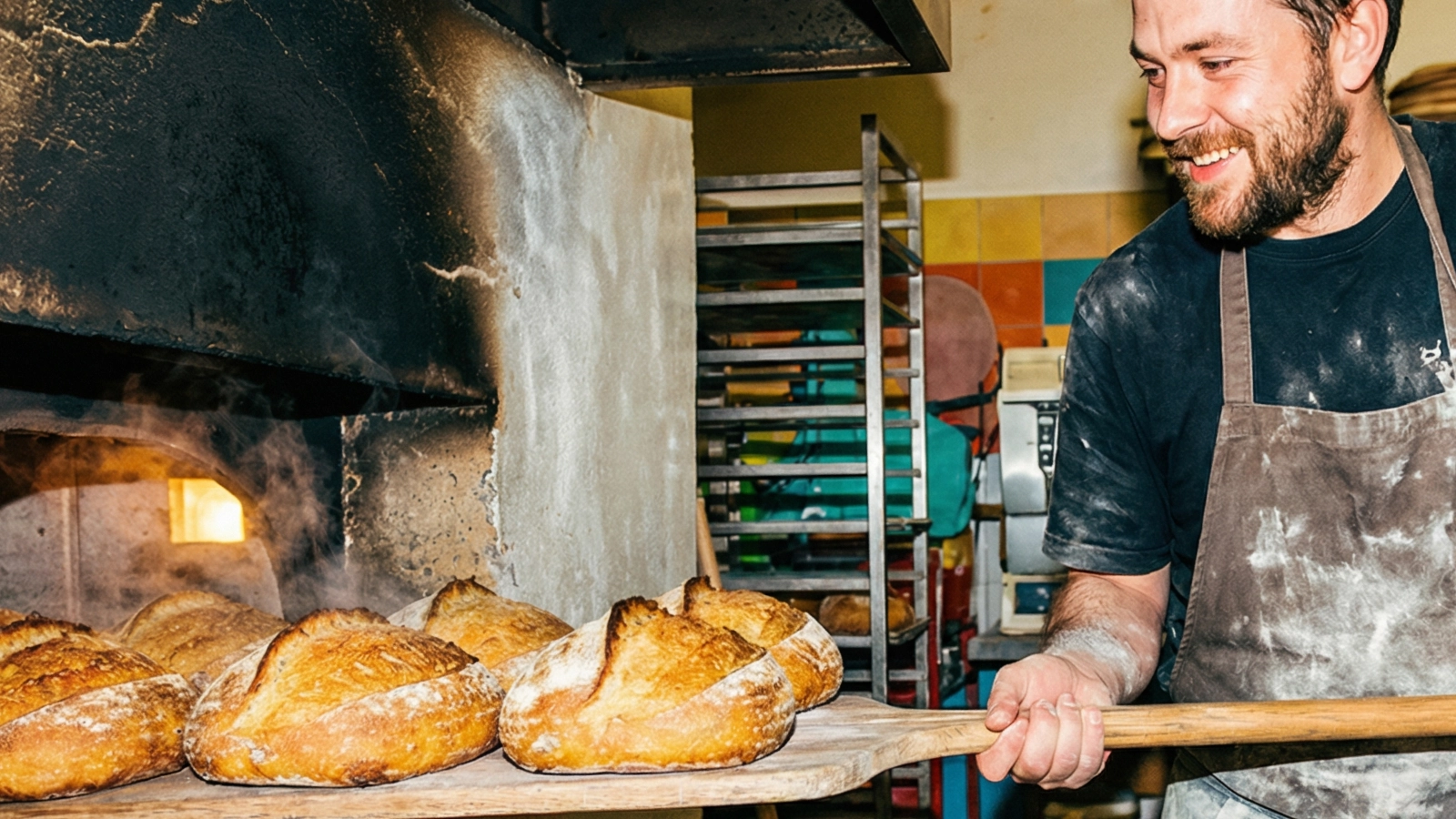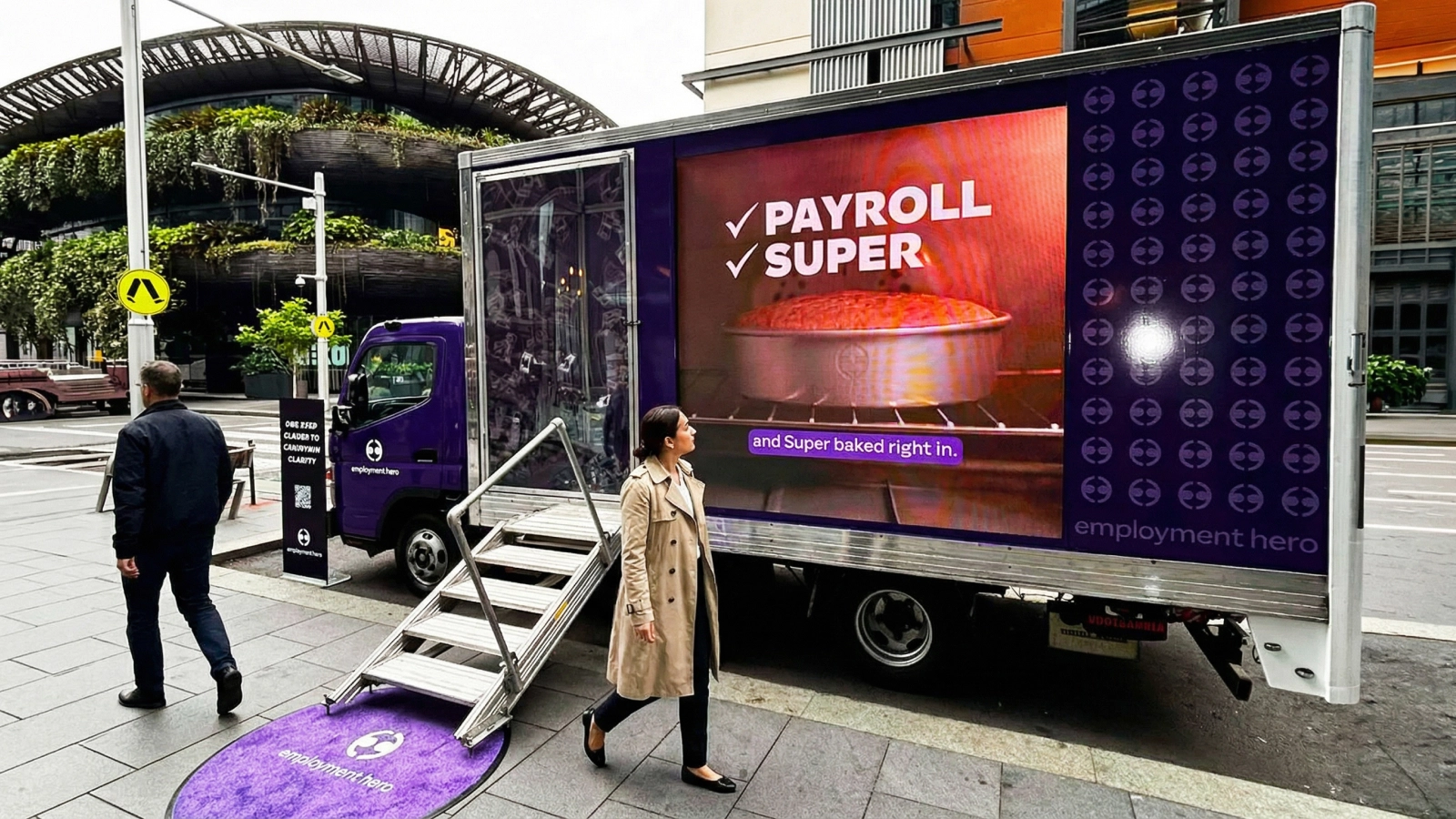When Julia Tink drinks her morning coffee, she looks beyond the cup to a multi-billion dollar industry ripe for disruption.
She built her business and brand, St Remio, as the solution to a global problem: 80 per cent of the world’s coffee farmers live on or below the poverty line.
By connecting coffee drinkers with the farmers who grew their brew, she’s proving small businesses can reshape broken systems and that the real competitive advantage isn’t your product, it’s what you stand for.
How A Single Purpose Led To A Single Origin Success Story
Julia and her husband, Trent Knox, founded St Remio a decade ago. The mission is in the name: it’s an acronym for Sustainable Transparent Rwanda Empower Melbourne Impact of Origin.
Their business model was an antidote to what they saw as the systemic exploitation of coffee farmers in some of the world’s poorest counties. They built personal connections with farming communities in Rwanda, investing in development and education, while educating Western consumers about the beverage’s dark origins.
“That’s everything that we stand for as a company,” says Julia. “Even when we’re working with customers, we want to make sure the customer’s values align with us too. It’s so much bigger than coffee. It’s a movement to change people’s perceptions around coffee and start to look beyond your cup.”
Julia believes founders must be guided by purpose and values when building a business. It sets them apart from the competition and, as a bonus, they can sleep at night knowing they’re doing the right thing. She’s proud St Remio stands out on the crowded shelves of the Coles coffee aisle.
“This is an industry that 100 per cent needs to be shaken up. It needs to be disrupted and we’re proud to be doing that. We make no apologies, and if it makes other coffee companies feel uncomfortable, great.”
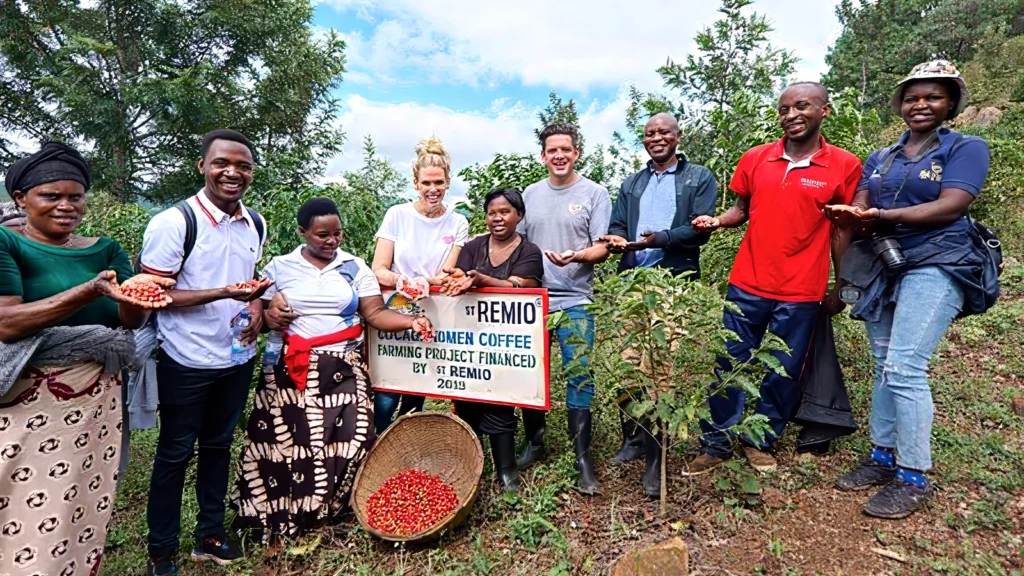
The Most Valuable Lessons Are Learned On The Job
She didn’t foresee a career in coffee, but Julia Tink knew at 15 she was destined to be an entrepreneur. She cut her teeth by founding a modelling agency.
“I did everything, HR, payroll, hiring people, firing people, you know, pitching new business, booking the girls. I loved that I could wear so many hats, and I could see the impact that I could have pretty quickly.”
She then ran her own public relations firm but small business beckoned, eventually convincing husband Trent, a former Lavazza general manager, to launch St Remio.
“I had spent so long working for myself that I was comfortable in the unknown,” she says. “If you just love something, you just go. You have to go in and learn.”
With no formal business qualifications, she’s a firm believer in learning on the job.
“It’s that willingness to wear multiple hats and research what you don’t know, and that hunger. Then, as you grow, it’s about building a team of amazing people around you that fill the gaps.”
Believe It, There Is No Place For Imposter Syndrome In Business
The most powerful quality in business can’t be taught at university, says Julia. “You have to have what I call unrelenting self-belief,” she insists.
She often meets people – usually women – with imposter syndrome but that’s not her experience. “I’ve earned my spot at that table,” she says proudly. “I am very strong, and I make no apologies about that.”
Every conquered challenge fuels the mindset: “When the s*** hits the fan – and it does all the time, like, every day – if you love it and you want it that badly, you will find your solution in the chaos. There’s a lot that’s happened to us which most people would have run away from but I said, ‘I just believe I’m going to be okay.’ Like, there’s something inside me that tells me, that’s that unrelenting self belief.”
People Can Say No But You Don’t Have To Hear It
Another key to success is reframing rejection. “I would take every ‘no’ as a ‘not yet,’ says Julia, matter-of-factly. She says too many SME owners interpret knockbacks as final when they could be viewed as temporary timing conflicts.
“It means your business and where you are, you’re not ready to take that on either. So, keep pushing, keep doing the work, and never say, ‘Oh, well, whatever.’ I’m like, ‘Ok, that’s fine, but I’ll see you again next time. We will work together. It’s just a matter of when.’”
Although Julia doesn’t believe in accepting ‘no,’ she advocates saying it to others: “There’s so much power in the art of no: that business is not right for me, that customer is not right for me, that’s not what we’re doing. We do this. The moment I start to colour outside the lines, it doesn’t work for us so we stay within our boundaries.”
She acknowledges ‘yes’ feels safer in the early days of building a business.
“You need cash so you’re saying yes to things you shouldn’t and maybe working with people you shouldn’t. I think that at the start there’s an element of desperation in it, like, I need money, I’ve got to start building. So you’re saying yes, yes, yes, yes, but for us, we would continually keep getting our hands burnt in the flame because we were not doing what we set out to do.”
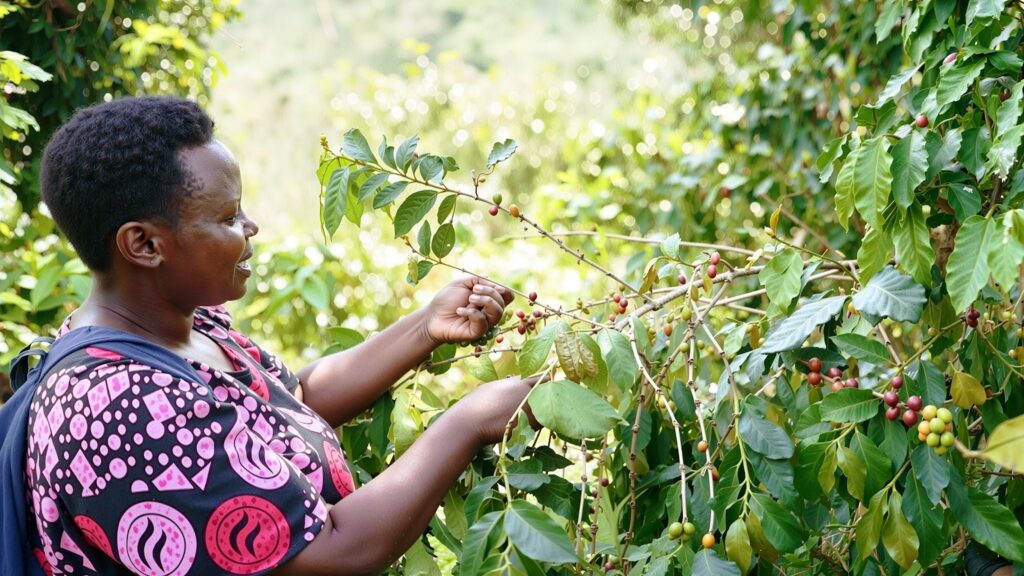
There’s No Escaping The Fact Something Has To Give
Julia concedes even the most strong-willed businessperson can’t succeed on confidence alone. Despite best intentions, sacrifices have to be made. “Lots of people think, ‘I can start a business and it will give me greater balance.’ You’ve gotta be kidding me! No.”
That’s not her experience. “My question then is, ‘What are you prepared to give up?’ It can be time with your family. It can be your own personal progression. You know, maybe you can’t buy your family house because you’re using that money and investing it back into the business. So what are you prepared to do? And if you’re not prepared to do that, then you’re not prepared to build a business.”
Julia and Trent have juggled running their business with raising a family, and as their two children grow, they expect St Remio will too.
“I want to be known as the leading global ESG brand in coffee, the one that breaks the mold. I put it out into the universe because I really believe that’s what’s going to happen.”
For people beginning in business, she has this advice:
- Cutting costs on advice will cost you in the end – “If you have external advisors (e.g. lawyers, accountants), you are only ever as good as they are. I will always go to the top because I get what I pay for. It’s about the quality of advice.”
- Trust your intuition and roll with the punches – “I always listen to my gut on everything. You can take that business plan and tear it up into shreds.”
- Be brave – “I think you’ve got to lean into the fear. You can always sit on the fence and be like, ‘It’s all too much,’ or ‘What if?’ But I never want to live my life with a what if or regret. It’s just do it, learn and be the best you can be.”
- It’s good to get things wrong – “It’s such a windy road. You have to make a lot of mistakes along the way. That’s inevitable but it’s about how quickly you can learn from those mistakes and what lesson you’re prepared to take out of that.”























